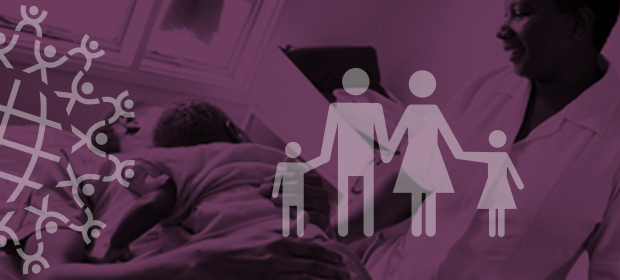Where We Work
See our interactive map


Kenya is taking steps to address its health workforce shortage and the gender imbalance in contraceptive availability and use.
One of the most effective methods of family planning is little known, most underutilised, and remains undocumented in Kenya.
Vasectomy is a highly effective, convenient method of permanent contraception for men but myths discouraging its adoption have flourished.
In general, lack of information, inaccessibility of services, and a widespread desire to have more children have prevented many men in Kenya from becoming involved in family planning.
Men must become more engaged in family planning, for the sake of their families’ health and Kenya’s economy.
But Kenya’s unmet need for family planning and the changing cultural landscape over the past two decades have brought new realities.
Kenya is home to over 39 million people from 42 ethnic communities.
Performance, monitoring and accountability survey (PMA2014/Kenya) found that 42.7% of all women and 55.7% of married women use modern methods of contraception.
The survey also found that 15.7% of all women ages 15 to 49 and 20.6% of married or in-union women had an unmet need for family planning.
According to recent estimates, female sterilization is used by 2.8% of women who practice contraception, and male sterilization by fewer than 1%.
These statistics show a need for family planning services in Kenya, and a specific need for increased knowledge of, access to and use of long-acting methods, including vasectomy.
Men must become more engaged in family planning, for the sake of their families’ health and Kenya’s economy. Today the discourse around vasectomy has gained traction.
The London Summit on Family Planning 2020 (FP2020) led Kenya to commit to increasing its contraceptive prevalence rate amongst married women to 70% by 2030, and the Ministry of Health has resolved to provide equitable, affordable, high-quality family planning information, services, and supplies—including expanding vasectomy services.
And now, World Vasectomy Day has come to Kenya. This health fair and movement increases awareness around vasectomy, initiates discussions on male engagement in family planning options, and offers health services specifically for men.
This is one step toward bridging the gender imbalance in contraceptive availability and use.
To reach Kenya’s health and economic goals, we must have an honest discourse with men on their role in family planning.
We also need a health workforce that it trained to offer services for men and no longer considers men to be barriers to family planning.
Family planning is not only for women. Studies have revealed that many women (and men) believe it is women’s responsibility to plan and space children, but these attitudes are changing.
More men are interested in their wives’ lives and family planning. Men should be involved in making decisions around contraceptive methods, including initiating discussion on the number of children they want to have and when.
Vasectomy is a good option for any couples who have reached their desired number of children. It is not necessarily right for young people, who may later regret their decision.
But for many couples it is ideal—the procedure takes only 15-30 minutes, heals fast, has no side effects, is 99% effective, and does not interfere with sexual function or pleasure. It is also safer and much less invasive than female sterilization.
How can family planning methods like vasectomy improve Kenya’s economy? In a scarce-resource setting such as ours, most people fall into the low-income bracket. Lack of family planning can contribute to both physical and mental distress, especially when linked to economic hardship.
At an antenatal care clinic, for example, one woman who was eight months pregnant mentioned she had not sought care for the past eight months because she was depressed—she was not ready for another baby.
Her story is representative of thousands of women with unheard voices and unmet family planning desires.
We must train health workers in Kenya to provide health services specifically for men, including vasectomy.
Family planning can help families stay out of poverty, improve children’s health and well-being, and allow more girls and women to gain education and decent employment. Smaller families have more spending power, leading to more prosperous communities and stronger economies.
To make family planning methods such as vasectomy more widely and sustainably available in Kenya, our efforts should focus on the health system, including the following steps:
Many health workers are not prepared to involve men in health services, and as a result, many men feel that health care is not for them.
Join us at World Vasectomy Day on November 18 at the Kenya National Theatre in Nairobi as we dispel this myth and continue this crucial conversation.
This piece was originally published in The Star.
Get the latest updates from the blog and eNews




